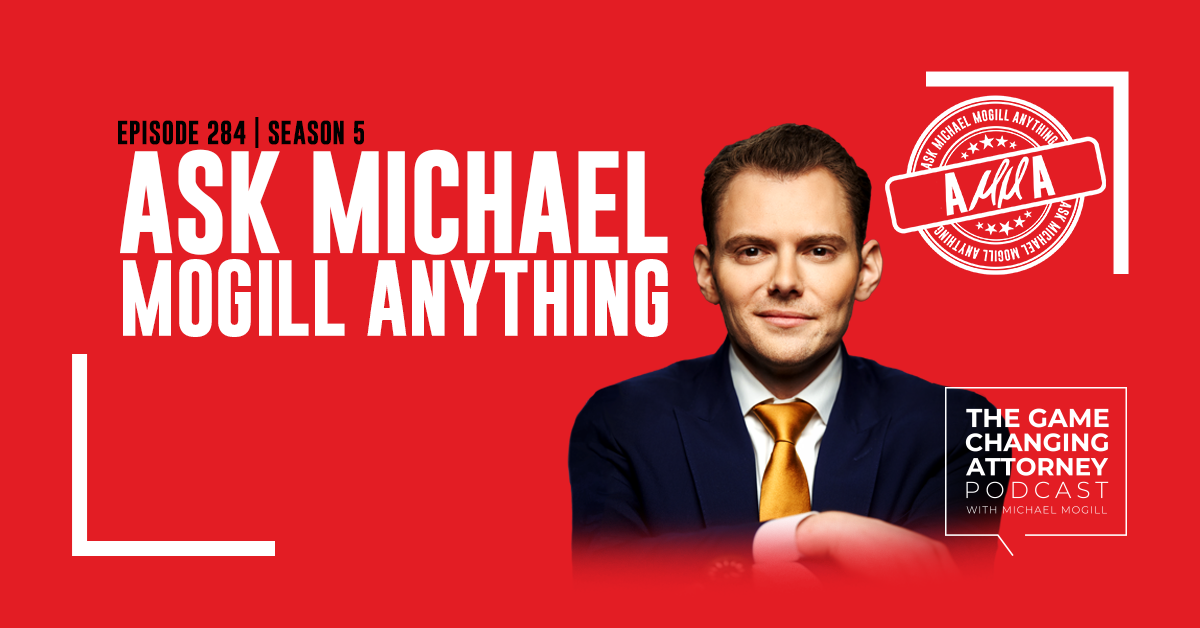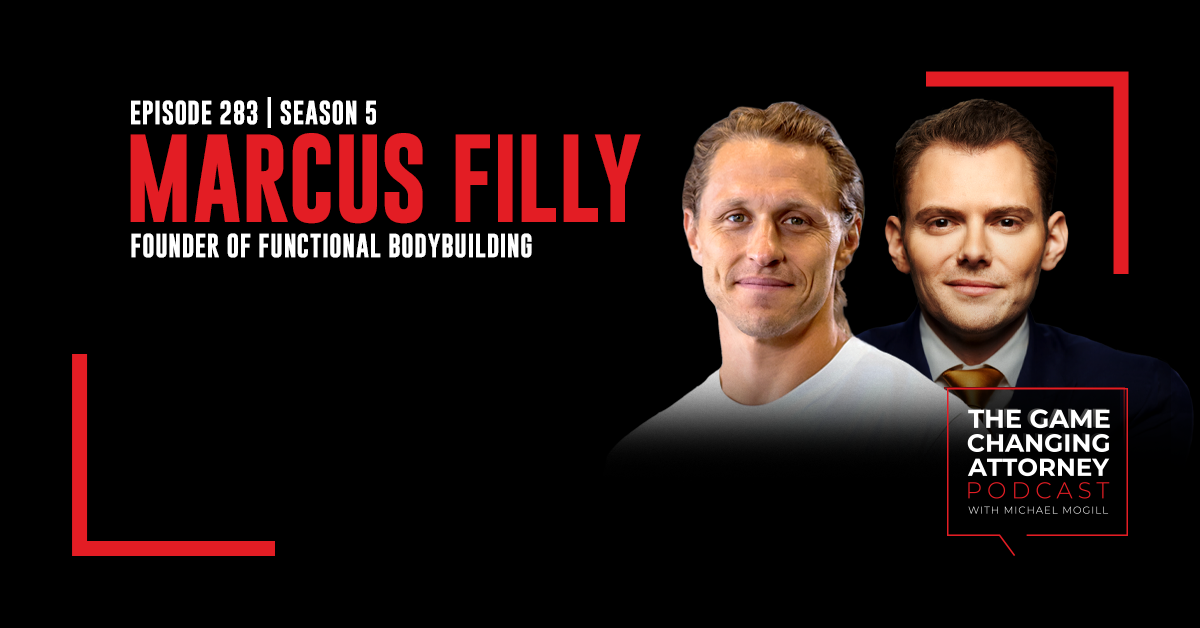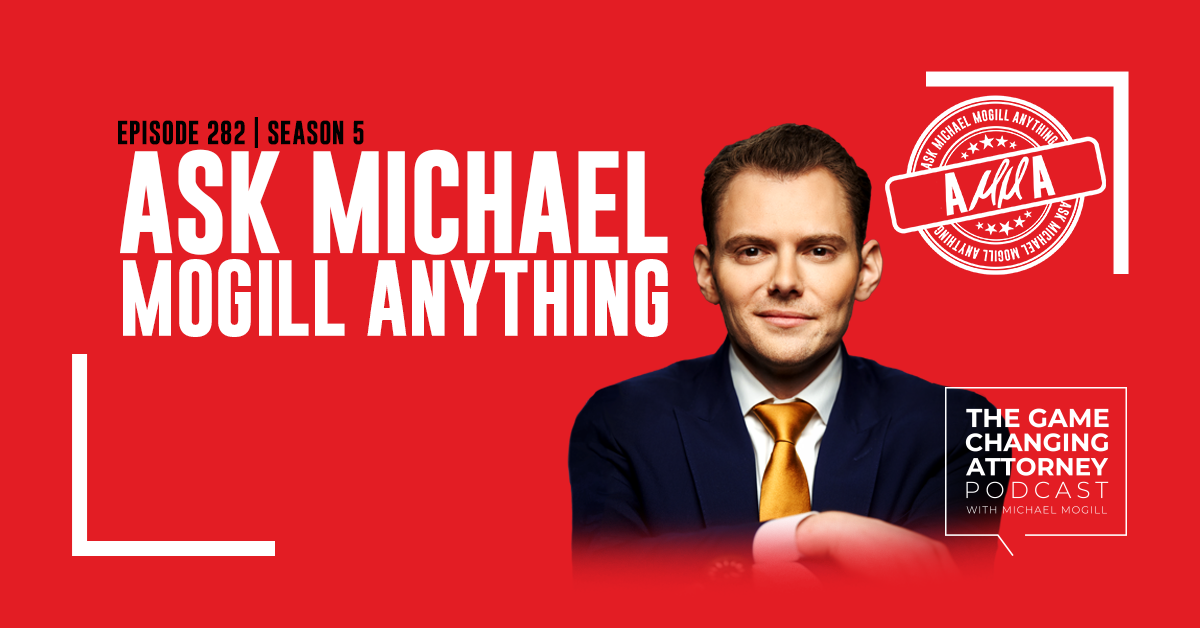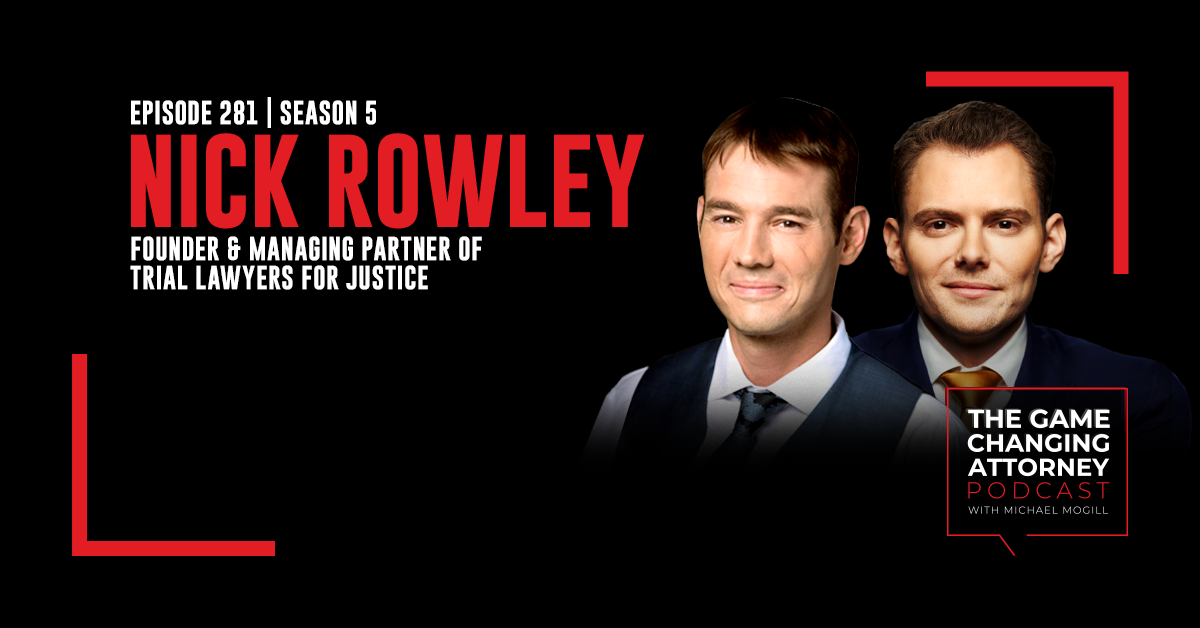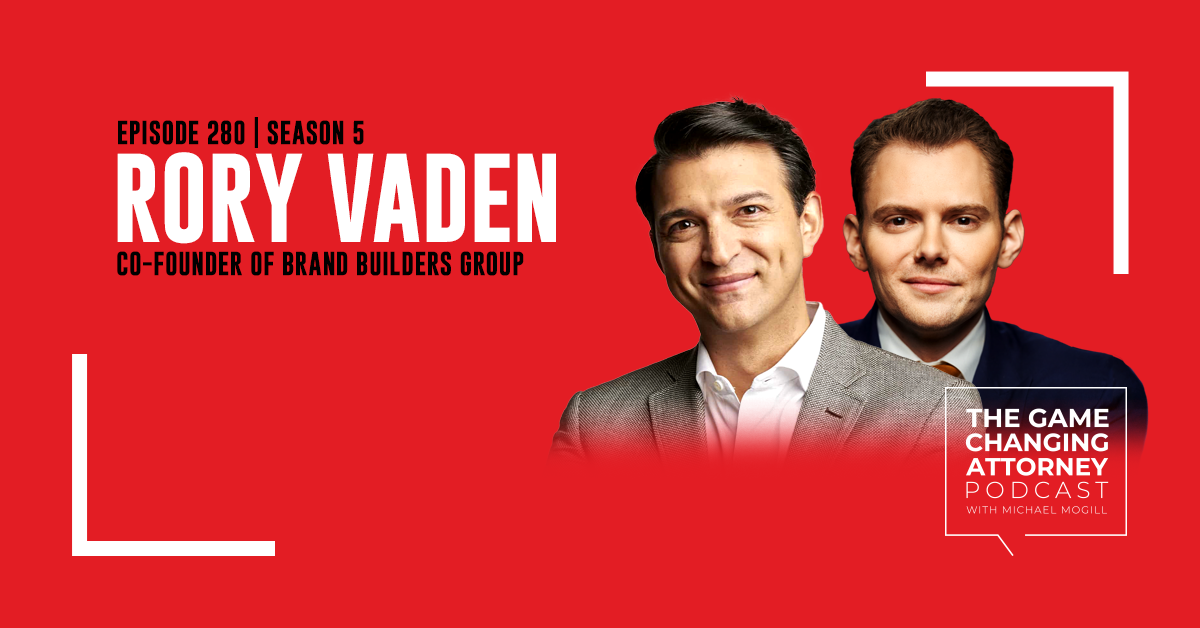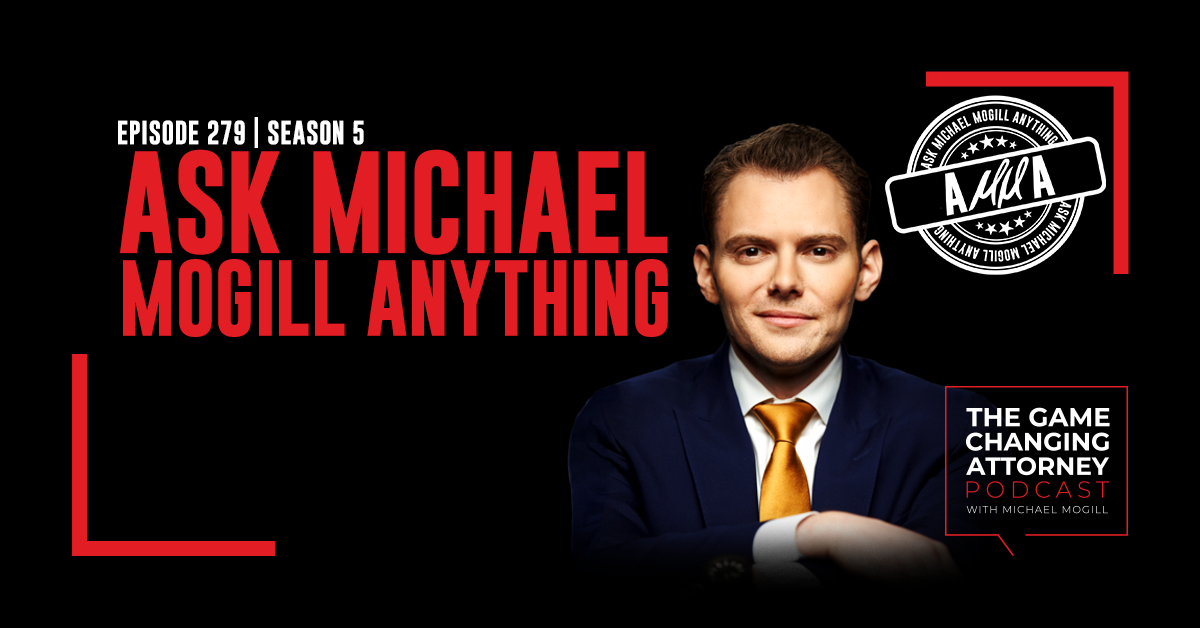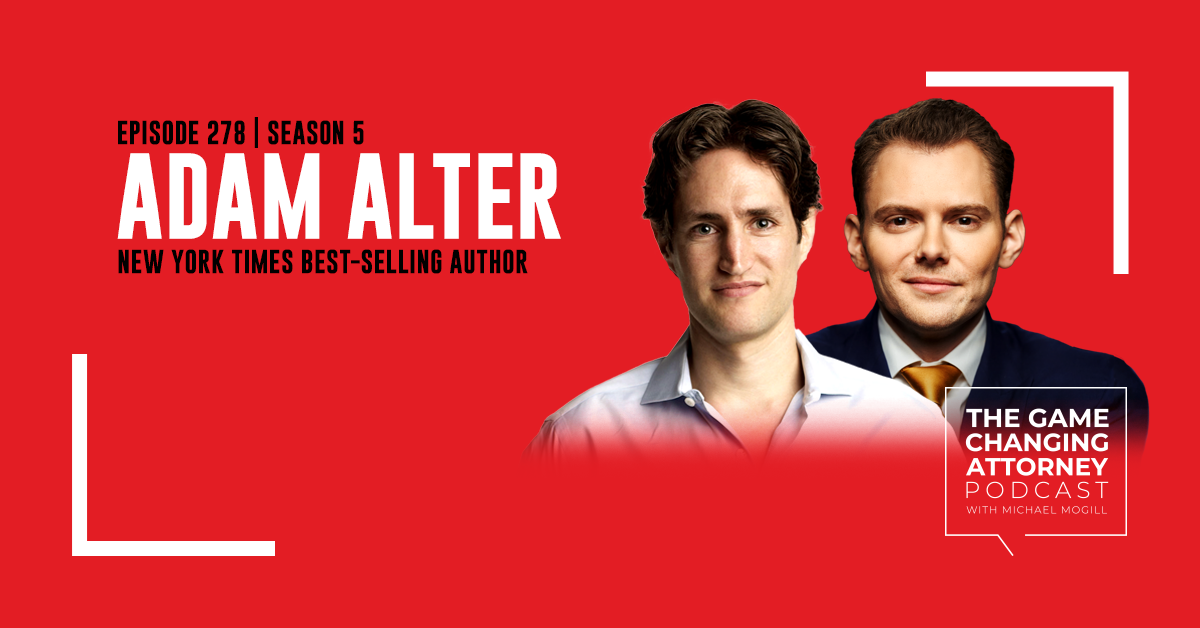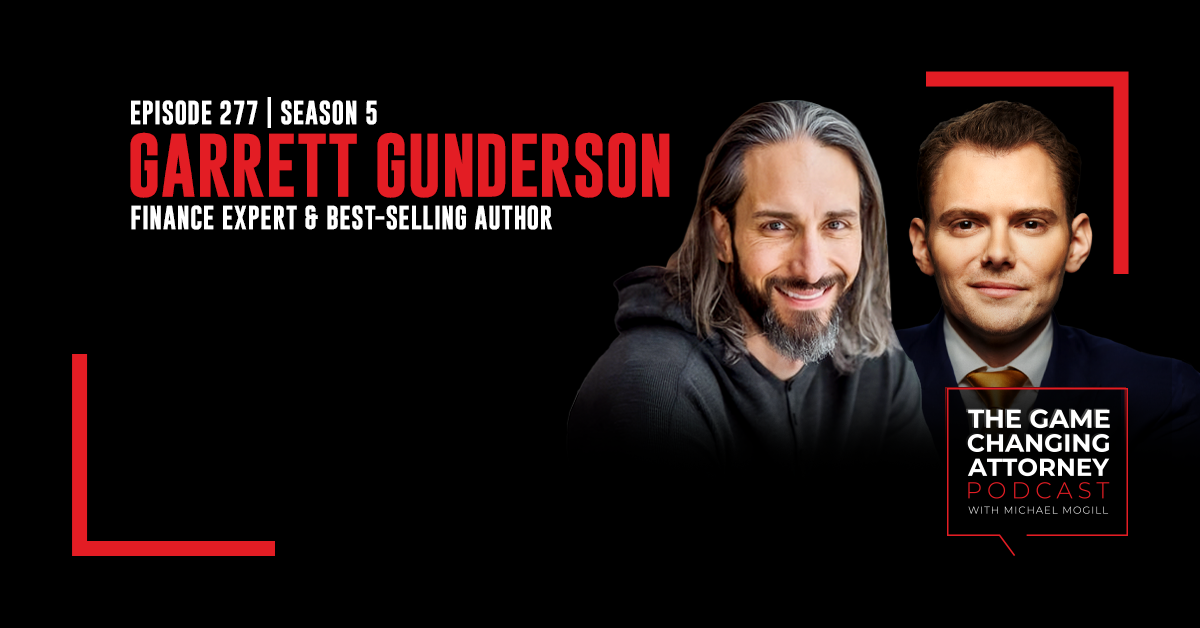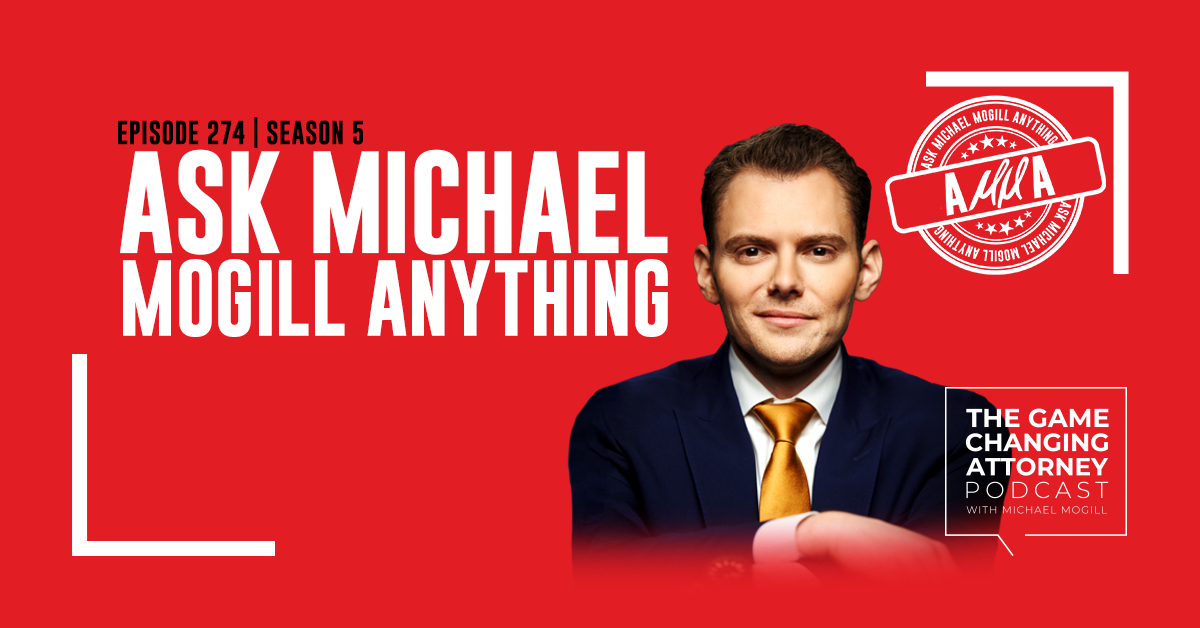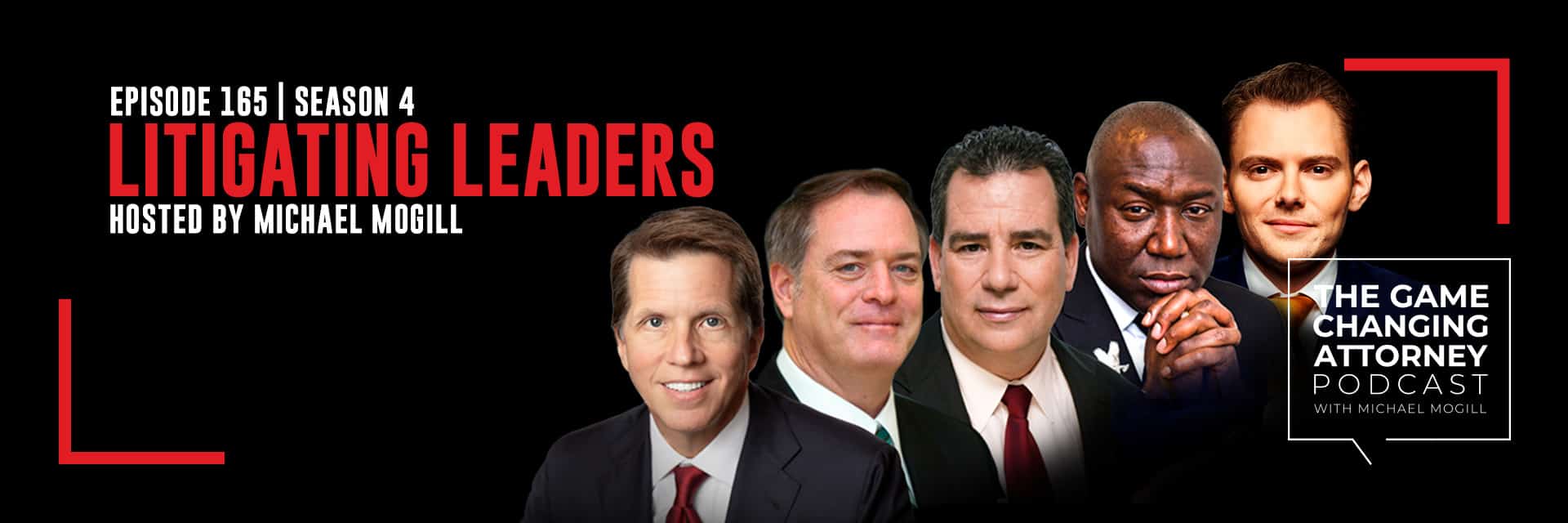
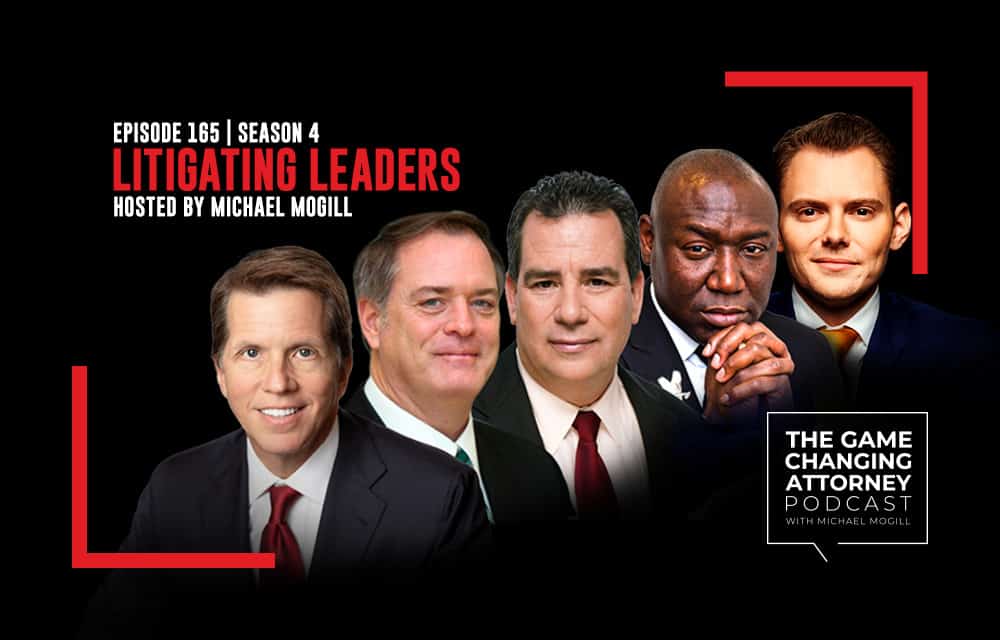
Episode 165 — Litigating Leaders: Lessons Learned from the Nation’s Leading Trial Attorneys
The legal industry is full of some of the brightest minds on earth, but there are four in particular who are willing to do whatever it takes to make sure that justice is served.
On this episode of The Game Changing Attorney Podcast, we’re revisiting four of the most iconic conversations Crisp Founder & CEO Michael Mogill has had with these game changers, featuring:
- Mark Lanier, Founder of the Lanier Law Firm
- Robert Bilott, Renowned Environmental Attorney and Best-Selling Author
- Brian Panish, Founding Partner of Panish | Shea | Boyle | Ravipudi
- Ben Crump, Legendary Civil Rights Attorney
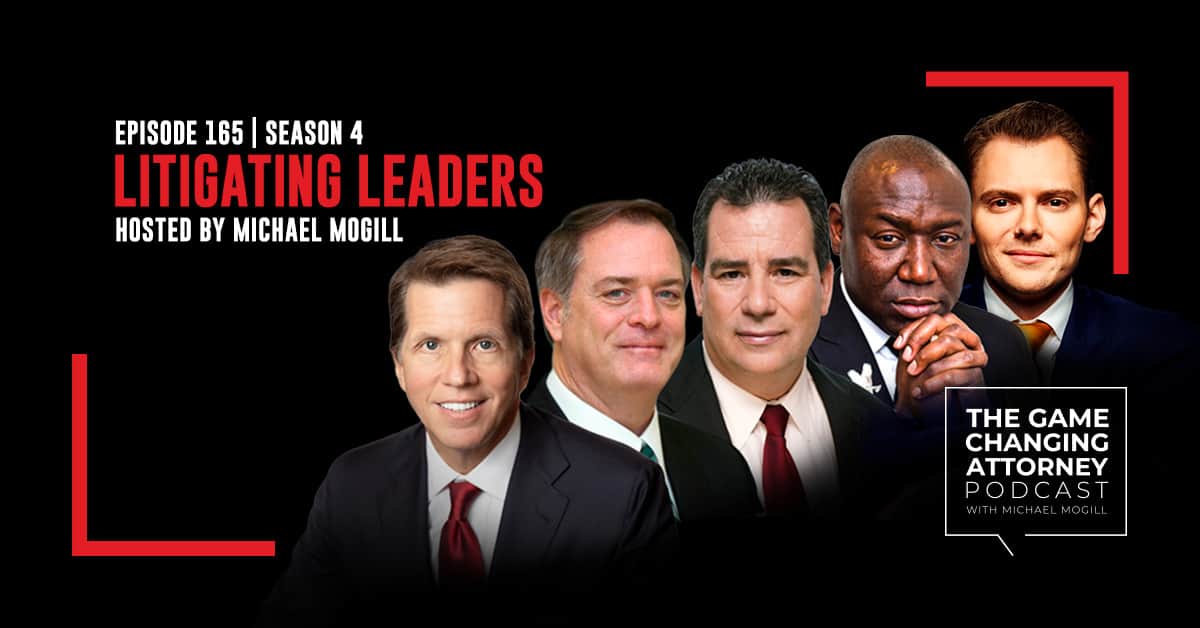
Listen & Subscribe
Show Notes:
Mark Lanier
Authenticity wins. “I had to realize, and I reached a point one day where a lawyer from Florida
said to me — it was David Lippman — David said to me, ‘Lanier, how many cases did you have to try before you realize you just need to be yourself?’ And I said, ‘David, I can remember exactly when I turned that corner because there came a time where it was no longer about being the chameleon imitating those that are successful. It was rather, learn their tools and what makes them successful, but integrate them into who you are as a person. Be authentic to who you are.’”
Having a David mindset in the courtroom. “I don’t get nervous; I get excited. You know, it’s really interesting, and this again is part of how I try a case from out of my faith. You know I’m in there because I think this is where God wants me to be — that clarity of purpose you were talking about before. I think this is what I’m supposed to do. You know, David wasn’t nervous when he was picking up the stones and he was about to fight Goliath even though Goliath was a giant that frightened the rest of Israel.”
An opponent’s misguided mindset. “I’ve been in cases before where people have said, ‘You know, I’m going to be the one. I’m taking you out,’ and they seem to be trying it just for that. I love those opportunities because that means that their focus is not where it should be. Their focus ought to be on the truth and getting to the truth in front of the jury. Instead, their focus is on taking me down.”
Robert Bilott
One case to change the world. “It seemed like a rather straightforward, narrow case — and after all, this was a family friend. So when we initially took it on, we had no idea that this would actually lead us to discovering that this was a problem that went far beyond that one family in one farm — that it was something that affected almost the entire planet.”
A history of toxicity. “PFOA is just one chemical in what we now know to be a huge class of these man-made chemicals that all share this really odd and unique carbon fluorine bond, and unfortunately that whole group has essentially escaped or been under the radar of regulators since they were first invented. It’s because the federal laws focusing on setting up rules for testing chemicals before they come out in the market didn’t come into play until after these chemicals were already out there and being used. This is one reason, for example, that folks pointed to this story and this chemical, PFOA, as one of the prime reasons why that federal law needed to be changed and revamped. In 2016, there were finally changes made to try to beef up those rules, but it took a long time. It took years to get the story out for people to understand. This is how this system really works, and there are thousands (if not tens of thousands) of chemicals out there that have escaped this entire regulatory process.”
Getting to the root of a bigger issue. “We then saw that the chemical was not just in the water these cows were drinking, coming out of this landfill. It was in the public drinking water, and DuPont had known this going back into the early 1980s. They had been secretly testing the public water, and not only was it in the public water in West Virginia and Ohio on both sides of the river — it had been found in the general population’s blood, and nobody really was understanding that. So looking at all this information, putting these documents together, we realized there was a massive public health threat going on that nobody really was even aware of.”
Brian Panish
Passion begets greatness. “It’s about winning. It’s about competition. It’s about being relentless and never giving up. But the most important thing is passion for what you do. For me, it’s about the clients. I just love hearing all of the different stories from all these different people. There are only three areas where there’s always a winner and a loser in today’s society: politics, athletics, and courtroom law. When you have a bad loss, you can’t sit around and think about it. You’ve got to go back to the next day to practice and move on. So we have a 24-hour rule here where you can celebrate or commiserate for one day and then it’s time to move on.”
Culture trumps all. “The most important thing in a law firm is its culture. If you have people who are committed to the firm’s goals, then you’ve got a strong culture. But if you have people who are complaining and saying negative things, then it starts going around the firm unless you have strong leadership and a consistent culture. That culture defines who you are and what you want to be. For us, our culture is getting the best results for the clients and doing the best work. We’re going to continue to do a great job and build our brand and our reputation and continue to get better. And if you do that, you’re going to be successful. But if people don’t want to work, then I’m the first to tell them that they can go ahead and leave.”
The client comes first. “Lawyers need to be dedicated to the practice and the clients, and they’ve got to know about the cases. They’ve got to work hard, but they need to know that it’s not about them. It’s always about the client. It’s not about them getting a big verdict or getting in the headlines. It’s about doing the right thing for the client. If you keep that in mind, you’ll always be right. It’s when you stray from that and try to get a bigger verdict or go out to the media — sometimes people are too into themselves.”
Ben Crump
Choosing to do the right thing. “I know what my objective is. God blessed me with this influence, and I’ve got to use it to help those who have no voice. Fox News said I was the most dangerous man in America, and I couldn’t help but wonder how that could be possible if I’m just trying to help Black people get equality. What could be so bad about that? My team and I deal with death threats, and that’s why it was hard to agree to filming the documentary. I know what I’m getting myself into every day, but I didn’t want to expose my wife and family to the same things. That was a very methodical decision, and I eventually chose to do it because it gave me a platform to speak truth to power.”
How to drive real change. “We all have a role to play in this struggle for equality and justice, and everybody doesn’t have to be on the front lines with me. That looks like trying to make a difference in your community or take on a mentee who thinks totally differently from you. Help them achieve the American Dream. Being a mentor for that person could end up proving that you learned just as much from them as they did from you. You don’t have to save everybody, but you can make a difference with a few people. For the trial attorneys, support scholarship funds. Hire different people. Do what you can, where you can. Do good and do well.”
Power through. “Every time you go into a courtroom, you make sure that your axe is really sharp that morning. Everything you do is going to accumulate into something that you’re going to have 20 years from now. Though it may be hard at the moment, you’ll be grateful you went through it. The real victory is in the journey.”
RESOURCES & REFERENCES
Episode 14 — Mark Lanier — Achieving Billion Dollar Verdicts
Episode 33 — Robert Bilott — Poisoned Water, Corporate Greed: The 20-Year Battle in Against Dupont
Episode 69 — Brian Panish — Champions Compete With Themselves
Episode 121 — Ben Crump — Speaking Truth to Power: The Fight for Social Justice in America
Connect with Michael
- Text directly at 404-531-7691
